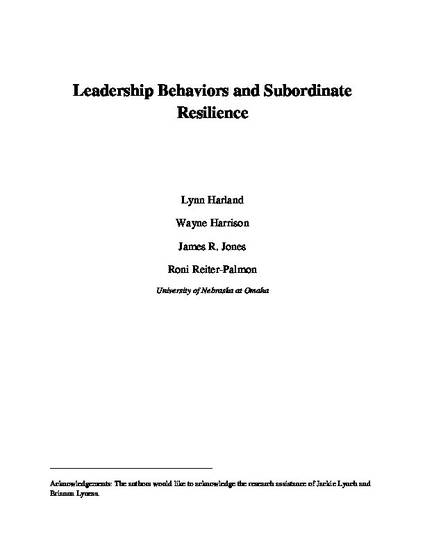
Utilizing a sample of 150 part-time MBA students, this study evaluated the relationship between leader behaviors and subordinate resilience. We proposed that the transformational leadership dimensions of Attributed Charisma, Idealized Influence, Inspirational Motivation, Intellectual Stimulation, and Individualized Consideration, as well as the transactional leadership dimension of Contingent Reward would be positively associated with subordinate resilience. We also proposed that the transactional leadership dimensions of Management-by-Exception Active and Management-by-Exception Passive and the non-leadership dimension of Laissez-Faire leadership would not be positively associated with subordinate resilience. With the exception of Inspirational Motivation, all hypothesized relationships were supported. A post-hoc analysis of open-ended responses to the question "What helped you to deal with this situation? " indicated that participants who mentioned their leaders as a positive factor in dealing with the situation exhibited greater resilience than participants who did not. The implications of these results and suggestions for future research are discussed.
Available at: http://works.bepress.com/roni_reiter-palmon/43/
